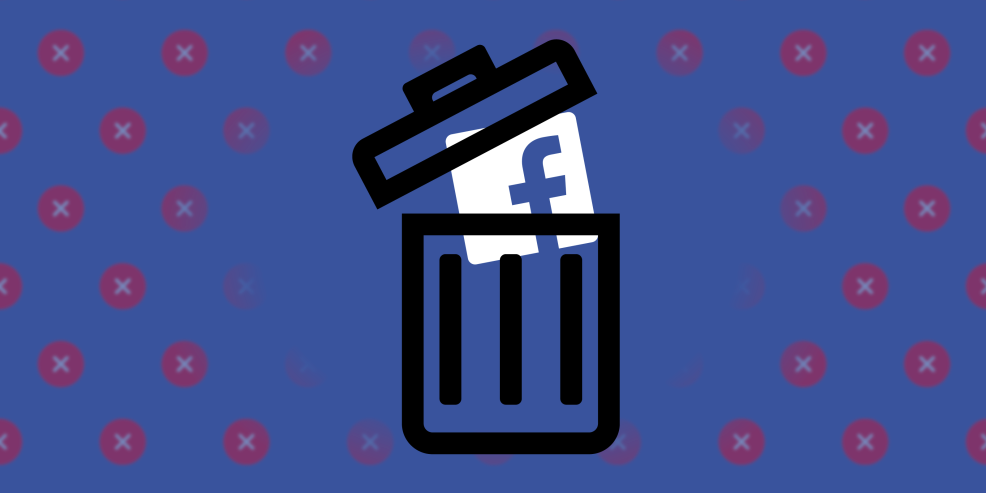
An anonymous confession.
A recent study reported by The New York Times suggests that people are people with or without Facebook. People without Facebook have mood swings; people with Facebook have mood swings and access to thousands of pictures of people they might only kind of know.
Examining the study, Benedict Carey explains how “heavy users were moody before they were sucked deeply into Facebook.” While participants who abstained from the platform for a month experienced “a small bump” in “life satisfaction,” reseachers by and large agreed that if you’re depressed on Facebook, you’ll be depressed off Facebook. If you’re spending nights online comparing yourself to old friends who didn’t accept you into the college literary magazine, then you’ll spend nights offline comparing yourself to the random people on TV or in the diners where you sit alone eating chicken fingers. That’s Science, the experts say, though they also say it’s “too early to draw hard conclusions”; as with all studies, nothing is really for sure. Elsewhere in the Times, writers are mythologizing that you can “un-break” your brain by stepping away from technology. In the midst of the rigamarole, I thought a personal history could be illuminating.

I quit Facebook and all social media in 2015. For years I had smelt and dealt its distinct phoniness. I had accumulated hundreds and hundreds of photographs of myself and “friends,” at sports events and parties, all of us smiling widely, blatantly showing off our alleged happiness. I often made silly faces as if I didn’t care about being perpetually photographed, though I was and am extremely self-conscious. I also judged people and felt annoyed at them if they posted too often or sorry for them if they didn’t post much, aka, didn’t have much to post. Regularly exhausted by all of this, I began taking Facebook fasts, Lenten fasts, but after some time would log back on.
After college, I resented seeing pictures of classmates I realized I had never really cared about and who I felt certain I would never see again. The last thing I ever posted was an Atoms for Peace music video, which one person liked. How could my nine hundred other friends not find that video amazing? Disgusted, I deleted my account. To everyone except the few people I saw day-to-day, at work, at home, or in the grocery store, I disappeared.
But not completely. I was and am still a person. I still run into people I thought I would never see again, at Barnes and Noble, and on sidewalks downtown, and occasionally, bizarrely, in church. I have heard that Facebook has become a home for Russian bots and fake news, for mean-spirited arguments and political polarization, but I wouldn’t know. It wasn’t that way when I used it. When I used it, Facebook was for showing off and for trying to make other people hate themselves more than I hated me. My main motivation, back then, was to craft an online persona who appeared so well-off, who my ex would see and feel terrible about losing. Really! I had broken up with her but still felt like I needed to exact revenge in this way.
Obviously I had some problems, and still do, and deleting Facebook did not solve any of them. It probably saved me from spending an unpalatable amount of time scrolling in a stupor of hopelessness, but maybe not even that. In many ways, I still do the scrolling, the posturing, the comparing; I still do, for example, what Tim Kreider once described as spending 87 percent of one’s mental life “winning imaginary arguments that are never actually going to take place.”

Online writers, in particular Christian ones, have grown satisfied with what Carey calls the “presumption” that social media causes “real psychological distress.” We preach about how likes are not Love. We verbally accost people for being shallow online. A closer look, though, shows that we are shallow online and off. In real life, there are people we fake to care about. In real life, there are people we compare ourselves to. We feel miserable when we don’t measure up. We crave whatever thing we don’t have.
Social media is fast becoming a scapegoat, something you decry in order to feel righteous; Donald Trump is another. Old white men in general are a third. The truth is, before social media was developed, before Donald Trump was elected, before that old white guy won an Oscar, we were in much the same state as we are now. None of these goats will fundamentally alter us, but our persistent crucifixion of them betrays our craving for absolution.
That the scientists are now dialoguing on the true effects of social media is good news. This is an opportunity to see what we’re really up against. This is an opportunity to contemplate original sin, what Luther called “an inclination to evil, a disgust at the good, a disinclination toward light and wisdom”; what Francis Spufford calls “the human propensity to f*** things up.” Without the intervention of a gracious God, you and I make the virtual world a worse place, just like the real one.
Luckily if social media sucks, you can quit and live without it. Expect, though, in some small way, to be revealed to yourself. Quit social media, and you will know for sure that social media was never the cause of your myriad problems. You will also probably miss seeing all of the pictures of your nieces in China. Quit social media, and you might not engage in unpleasant arguments with your childhood friend’s roommate’s Republican cousin, but you will nevertheless boil with rage when you are personally affronted in some other way. You will find plenty of opportunities to become righteously indignant, “I quit Facebook” being probably the first. Because the problem with today’s world is not social media. The solution, now and forever, is the care of a gracious God who loves you so much he couldn’t give a flying flip what you posted on Facebook in 2013, or this morning, so long as he can be with you. And that’s a message worth liking, sharing, and subscribing to. But I’ll never know if you don’t.

COMMENTS
5 responses to “What Happens When You Finally Quit Social Media”
Leave a Reply













“Like”
Like
So many nailed points here! Righteously letting everyone know you don’t do facebook, following people you never cared about (or remembered) in real life, quitting social media and discovering you are still your messed up self…
This makes good points but social media encourages more non existent issues. Also depending on where you live not everyone will compare themselves with others at least as much if they had a Facebook I would still prefer real life, dealing with it.Before social media I was more content and satisfied with my life. Social media gave me false outlets when it should have been Jesus. I rather get rid of it and cherish time with people I live with and encounter, I was happy to leave high school in 2012 but I choose to deal with them on my timeline? The equivalent of dealing with them in the hallways? Yea no thank you. I just turned 26 time to shift priorities.